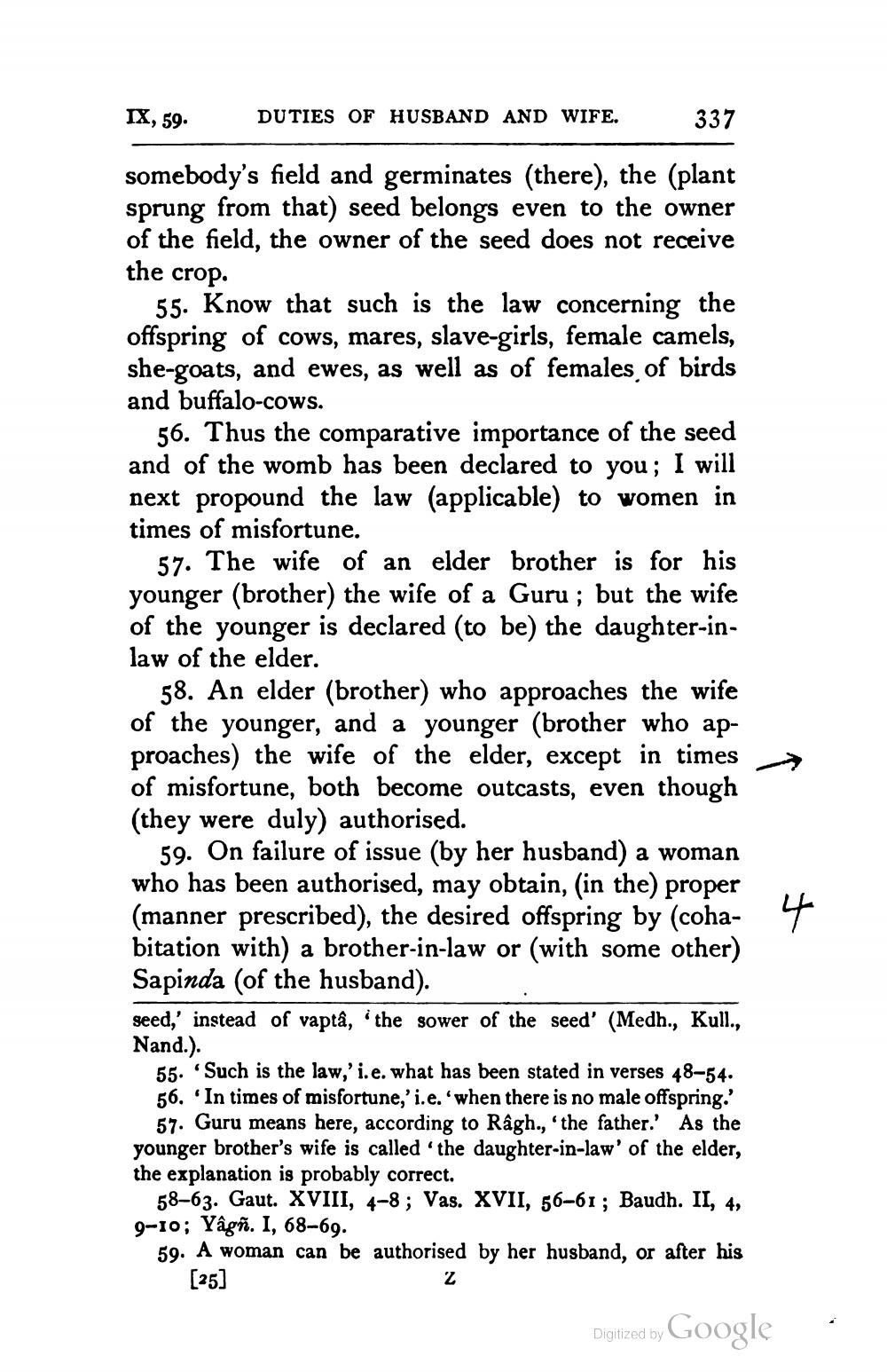________________
IX, 59.
DUTIES OF HUSBAND AND WIFE.
337
somebody's field and germinates (there), the (plant sprung from that) seed belongs even to the owner of the field, the owner of the seed does not receive the crop.
55. Know that such is the law concerning the offspring of cows, mares, slave-girls, female camels, she-goats, and ewes, as well as of females of birds and buffalo-cows.
56. Thus the comparative importance of the seed and of the womb has been declared to you; I will next propound the law (applicable) to women in times of misfortune.
57. The wife of an elder brother is for his younger (brother) the wife of a Guru ; but the wife of the younger is declared (to be) the daughter-inlaw of the elder.
58. An elder (brother) who approaches the wife of the younger, and a younger (brother who approaches) the wife of the elder, except in times of misfortune, both become outcasts, even though (they were duly) authorised.
59. On failure of issue (by her husband) a woman who has been authorised, may obtain, (in the) proper (manner prescribed), the desired offspring by (coha- bitation with) a brother-in-law or (with some other) Sapinda (of the husband). seed,' instead of vaptâ, «the sower of the seed (Medh., Kull., Nand.).
55. Such is the law,' i.e. what has been stated in verses 48-54. 56. In times of misfortune,' i.e. when there is no male offspring.'
57. Guru means here, according to Râgh., 'the father.' As the younger brother's wife is called the daughter-in-law' of the elder, the explanation is probably correct.
58–63. Gaut. XVIII, 4-8; Vas. XVII, 56-61; Baudh. II, 4, 9-10; Yâgñ. I, 68–69. 59. A woman can be authorised by her husband, or after his [25]
Digitized by Google Digitized by
4
.




